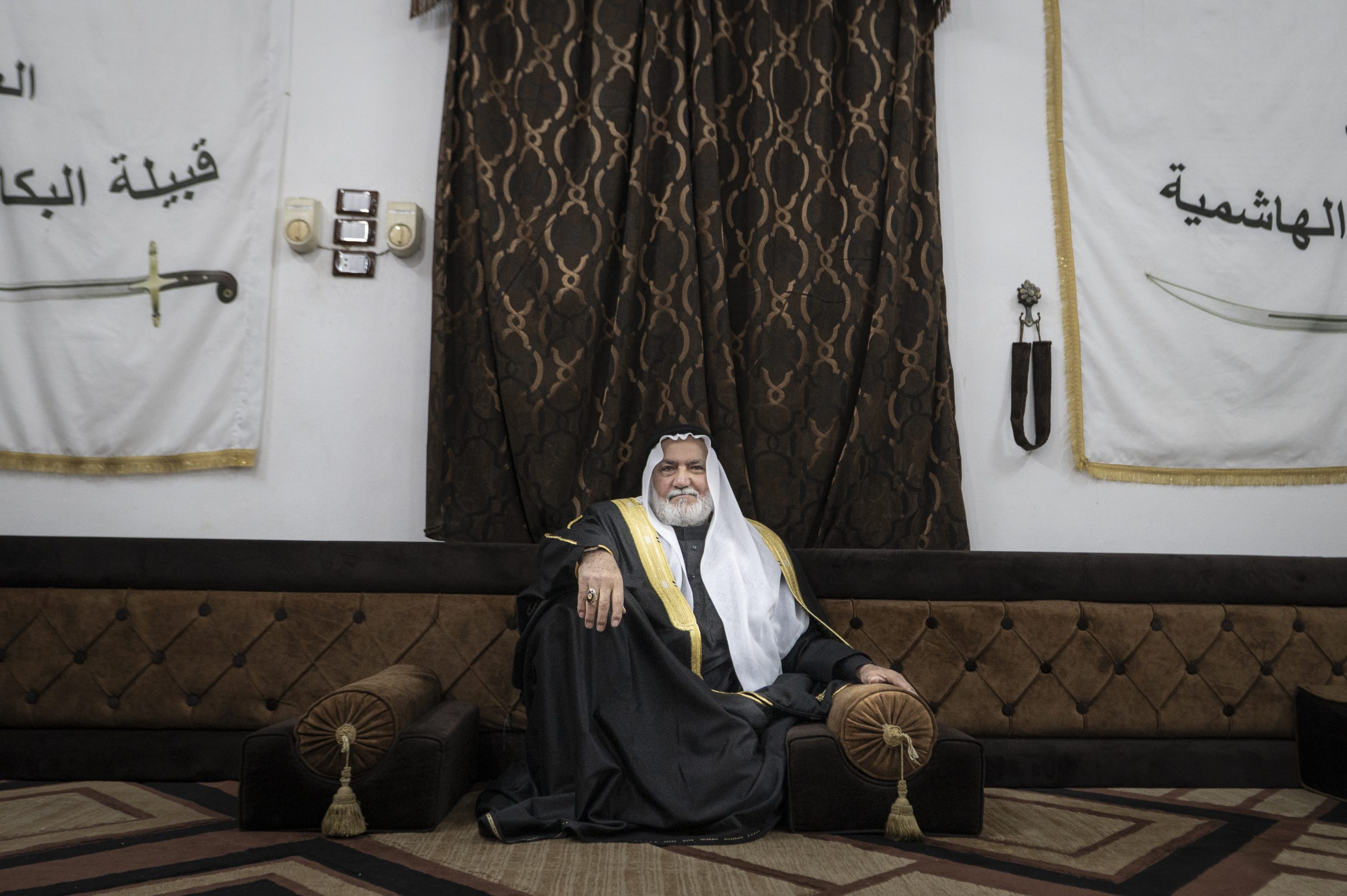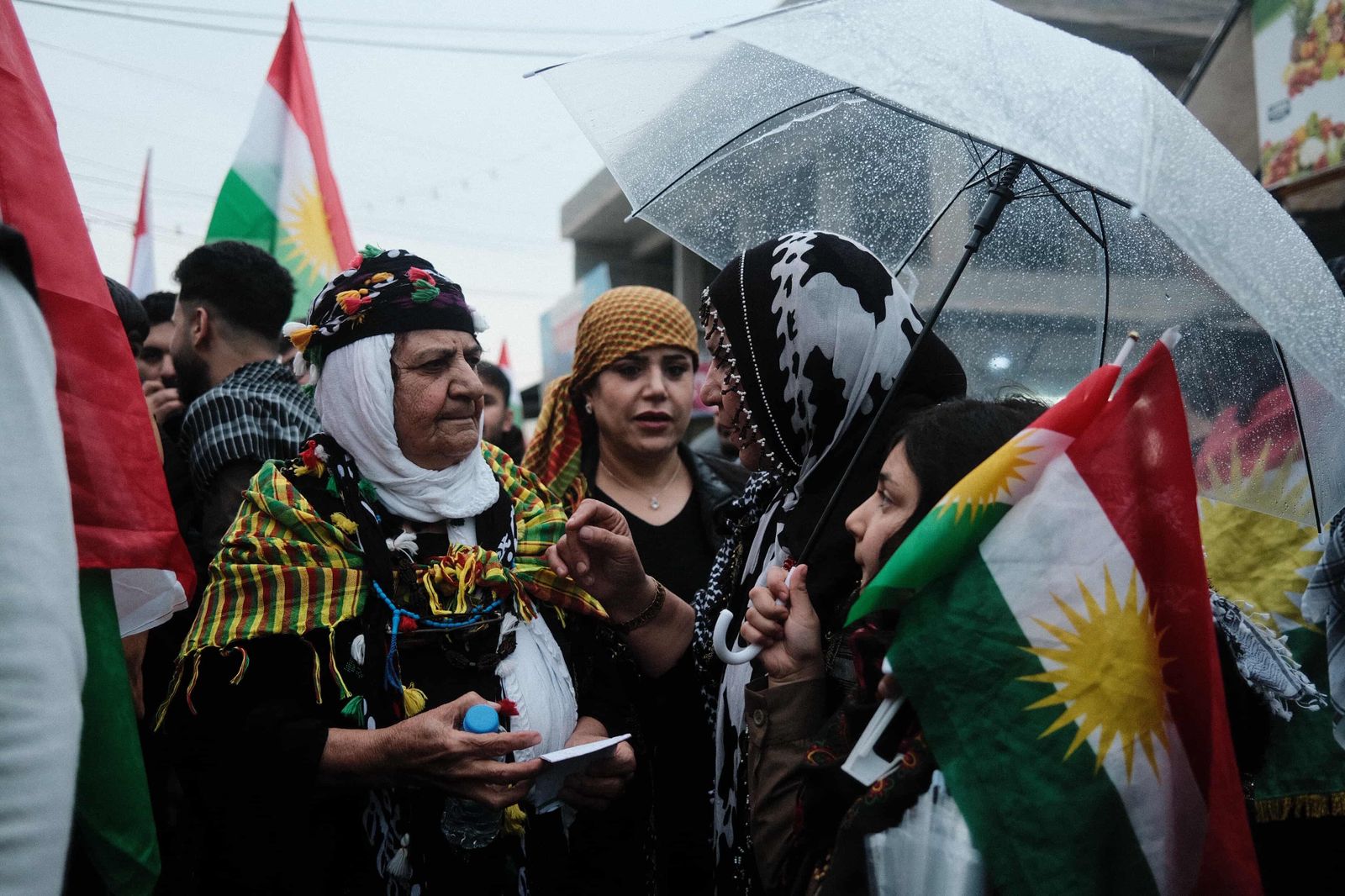The Judge Who Faced Iraq’s Dictator Saddam With Calmness and Patience
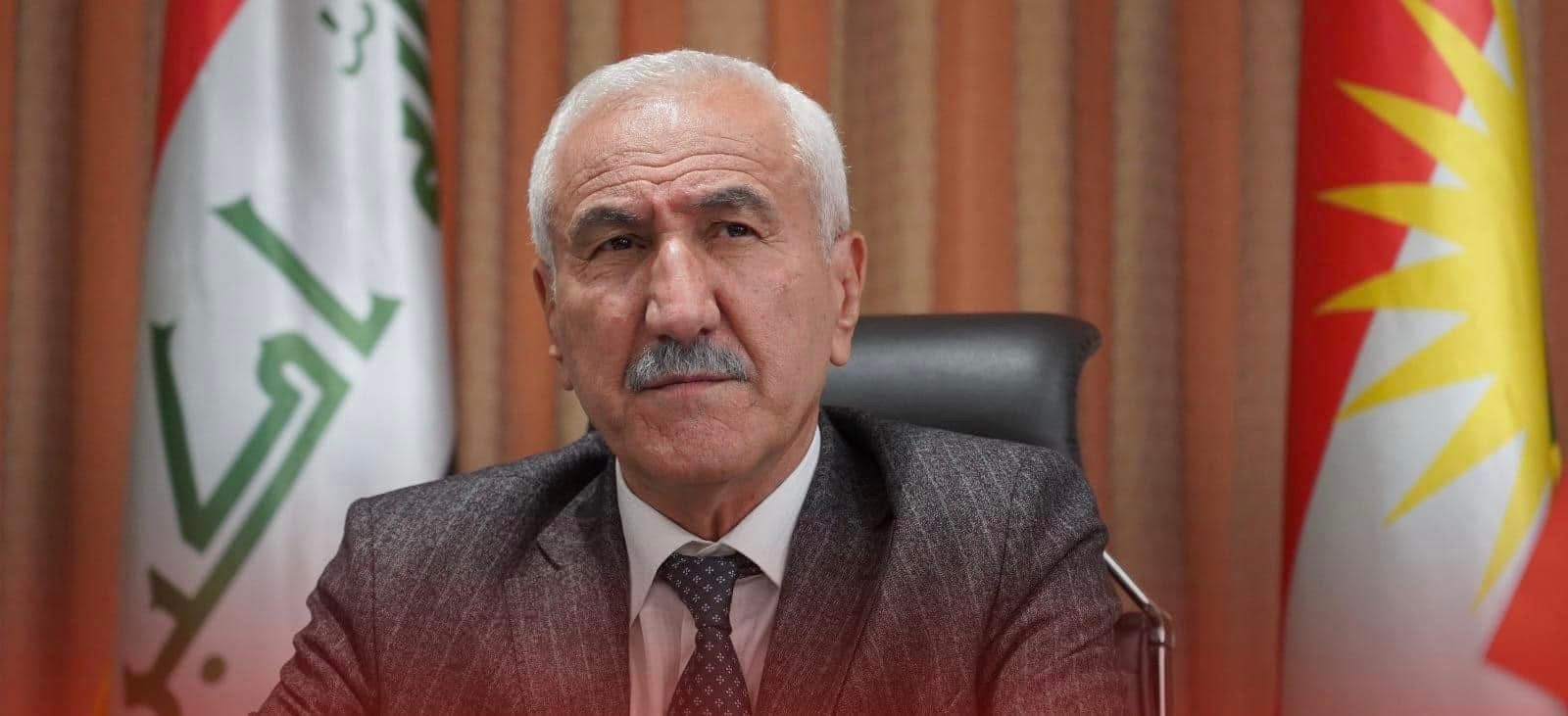
When Saddam Hussein, the man who ruled Iraq with absolute power for over three decades, finally stood trial, it was Rizgar Amin, a soft-spoken Kurdish judge from Slemani, who presided over the proceedings. He did so with a patience uncharacteristic of a post-war Iraq that was in a rush for revenge. Chosen reluctantly by colleagues wary of Baghdad’s dangers, Amin approached the historic case as he would any other: with impartiality and a deep faith in the law. Yet amid political interference, assassinated lawyers, and mounting pressures, his commitment to fairness revealed both the fragility and the necessity of justice in post-war Iraq.
The Amargi’s Arina Mahwi sits with Judge Rizgar—known across Kurdistan simply as Hakm Rizgar—to dwell upon the untold story of his days presiding over Saddam Hussein’s trial.
What motivated you to pursue a career in law, especially under Saddam Hussein’s regime?
I had a deep passion for law, which naturally stemmed from my background in a humanities-focused high school. I was always more drawn to the social sciences, and law stood out as the highest and most prestigious field within that domain. Additionally, my parents and especially my father, strongly encouraged me to pursue a legal education. My academic performance in high school during 1975–1976 was exceptional; I achieved the highest grades in the city, which further motivated me to study law.
My passion for justice and human rights runs deep. I truly believe that the legal profession is one of the most powerful tools for pursuing and delivering justice, particularly for those who have been wronged.
At the time, the University of Baghdad was the only institution offering a law program. University admissions were quite fair back then; if you had the required grades, you could secure a place without difficulty. Certain Faculties, such as the College of Arts or College of Education, required affiliation with the Ba’ath Party to enroll, but fortunately, the Law School did not impose such a condition. We got lucky because our professors were very talented, often hailing from European, American and Russian universities.
Was your Kurdish identity a problem in your professional journey in Iraq’s judicial system?
Early on, there were several political parties, but eventually, only the Ba’ath Party remained. Advancement into certain positions required party affiliation; if you weren’t a member, you were excluded from key roles.
Not significantly. From middle school (7th grade) onward, we studied in Arabic all the way through university, so language wasn’t a barrier. In Baghdad, the general population was well-educated and open-minded; the average citizen in Baghdad didn’t have anything against Kurds and they had good relationships with them. As students, we were even offered discounts and support from locals.
However, political dynamics were a different matter. The discrimination wasn’t directed at Kurds per se, but rather at anyone who didn’t align with the ruling regime. Early on, there were several political parties, but eventually, only the Ba’ath Party remained. Advancement into certain positions required party affiliation; if you weren’t a member, you were excluded from key roles. Still, as long as you didn’t actively oppose the regime, you could generally avoid trouble.
Of course, the situation was different in every region. During such regimes, the rule of law isn’t quite efficient, and the military back then was very violent with people. Even a mere association with dissent could lead to severe legal consequences. This was, of course, different in the war zones and later, also in Halabja. Generally, you wouldn’t have been safe if you in any way opposed the regime. It was a dictatorial regime for the entire Iraqi nation, not just for a specific minority. There were even specific criminal laws punishing dissent, often with the harshest penalty: execution.
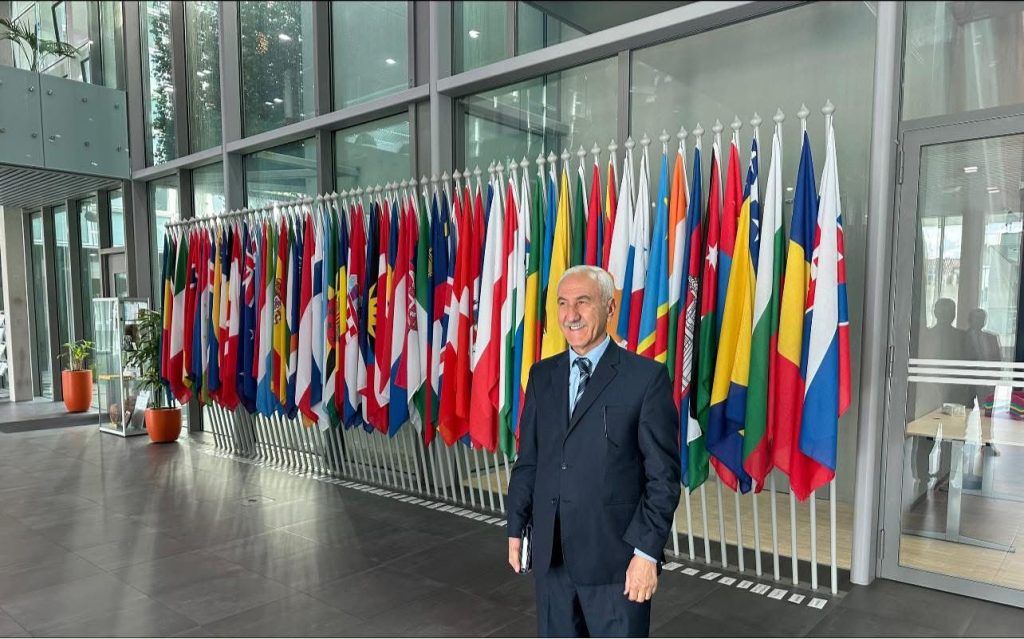
How were you chosen to preside over the trial of Saddam Hussein?
Initially, the request was for a judge from Kurdistan. I reached out to several judges, but none was willing to take the position. There were two different governments in Kurdistan at the time, one in Erbil and one in Slemani; I’m referring here to the government in Slemani. At the time, I was the head of Court of Administration. We held a meeting with the judges and the Minister of Justice to discuss the matter. Most judges were reluctant to go to Baghdad due to the dangerous situation there. The quality of life there was poor and basic infrastructure like electricity and aviation services was unreliable, and the overall environment was unstable.
Finally, my name was put forward, and I agreed to go to Baghdad from Slemani. I was rather unconcerned about the risks or conditions at the time.
We were five judges in the criminal court; the other four were Arabs. Then, the head of the court had to be elected. I made it clear that I would support anyone who was willing to take on the role. In the end, they elected me, and I accepted the responsibility.
What was your initial reaction when you learned you would be leading the trial?
I had a normal reaction because I looked at it as a job, as another courtroom to preside over like I always had.
Because I was serving as the Head of the Criminal Court in Slemani, I had more experience than the rest of them. Moreover, back then, everyone was avoiding this role. Had it been a routine case they would have been competing to get it, but this case was complicated. I had a normal reaction because I looked at it as a job, as another courtroom to preside over like I always had.
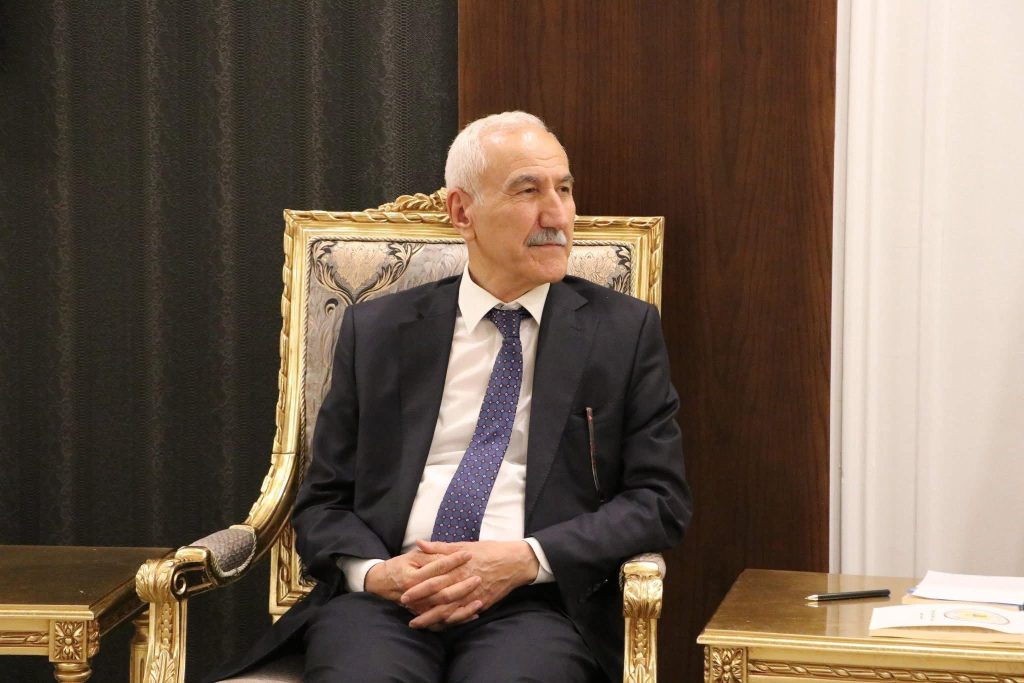
Did you have any meetings with the Iraqi leadership during the trials or prior to the trials? Especially the Kurdish leaders?
No, we, as judges and public prosecutors, only met with legal organizations. But I didn’t converse with Kurdish leaders because I know that the Judiciary is an independent power, and it must remain free from interference by other authorities. As a judge, one should never be swayed by external opinions, especially in a context where the former regime is considered an enemy of the current one. A judge must stand in the middle, objective and neutral. That’s why I distanced myself from the leaders.
Were there any personal safety concerns or political pressures in accepting the role?
No, the decision was made collectively among us. It was quite the opposite because, as I mentioned, people didn’t want to go to that region, everyone at the court was happy that I had taken the role.
How did you ensure fairness and impartiality during such a highly politicized and emotional trial?
In addition to my law degree, I completed a two-year program at a judicial training institution in Baghdad. Later, between 1991 and 1992, I pursued further studies, and over the years I participated in numerous legal courses both inside and outside Iraq.
I’ve always had a natural sense of clarity and transparency when approaching cases; I am like that by nature. I began my career as an assistant judge, then worked as a legal investigator, and spent three years practicing as a lawyer. By then, I had worked in nearly every area of the legal field; I had a lot of experience and was prepared for it. I wasn’t afraid and approached the case with the same professionalism and objectivity I brought to every other case I’ve handled.
What were the biggest legal or ethical challenges you faced in the courtroom?
There were many challenges, such as external interference, difficulties in preparing and obtaining witnesses, and preparing documents and evidence. Lawyers were getting fired, attacked or killed. So many minute and essential things influenced the trial.
Saddam’s lawyers were killed and boycotted the trials. What were your thoughts about that?
Yes, they boycotted, and two of them were killed while I was still there. I was against that situation, but I couldn’t do anything; I just condemned it. It was one of the things that made me question the values of the judiciary.
By outside interference, do you from mean inside or outside Iraq?
Primarily the Iraqi political parties, especially the Shia parties. However, there were also instances of interference from outside, including at times from the Americans themselves.
You knew Saddam as the president of Iraq who was loved by many in your youth. Then Iraq developed, but soon he became a brutal dictator in the late 70s and 80s. By the time of the trial, he had changed but never evolved into a real leader. Can you describe his psychological character through those years, and how he appeared to you while on trial?
He appeared stable, showing a sense of resistance and confidence in his ability to defend himself. He remained strong throughout the trial, even in the face of his execution.
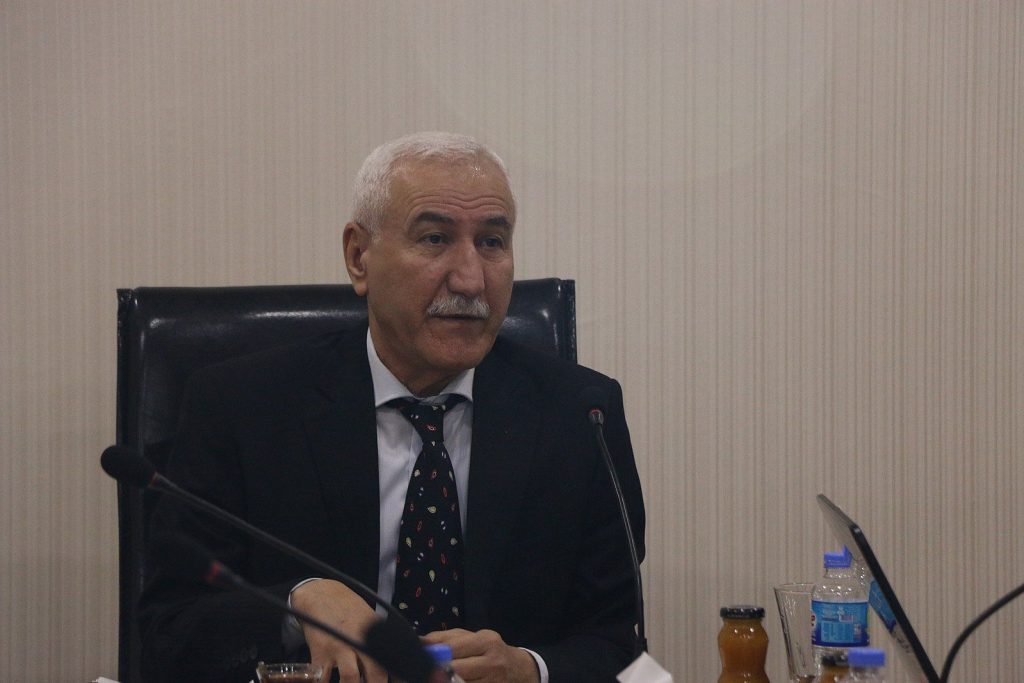
Why did you ultimately decide to step down from the trial? Was your resignation driven more by political interference or personal safety concerns?
Yes, I resigned myself, because there was a lot of outside interference. Killing the lawyers wasn’t normal, and I didn’t want to be a part of a political power to hit another fallen party. I believe that the court must be fair and make decisions based on documents and evidence. To me, the defendant is innocent until proven guilty.
You are known for being a calm and respectful judge. Do you think the Iraqi people could understand and accept that you were such a person even while trying a dictator?
Their criticism didn’t mean anything to me because it wasn’t scientific or legal.
We have to teach people to get used to that. I’m not going to wait around for people to tell me how to judge. Of course, there were complaints, but there were also compliments and praise, and now there are even more than before. Some people wanted to get closer to the new regime; some of them may even have been supporters of the old regime who criticised me for their own benefit — a conflict of interest. Their criticism didn’t mean anything to me because it wasn’t scientific or legal.
Do you believe Saddam Hussein received a fair trial? Why or why not?
As far as I was a part of it, yes. The rest is different. There were certain shortcomings that, in my view, deserve criticism both on national and international level.
What impact did the trial have on you personally and professionally?
It was a new experience for me in terms of international criminal law, because the laws with which we had been working were international. I learnt a lot from that experience. Socially, I received very positive feedback and support from people who acknowledged my fariness and neutrality.
Even very ordinary people who had themselves been victims of Saddam’s regime told me that they appreciated my approach, which proves that Iraqis support justice for all, including Kurds and Arabs. After resigning, I started working at the Court of Cassation in Kurdistan, where I remained until retirement.
How do you view Iraq’s current judicial system compared to the time when you served?
Although many laws have been reformed since the fall of the regime, Iraq’s judicial system and justice are generally falling behind. The situation is deteriorating; we still haven’t established a state that is fully run by the law. There are militias and armed people outside of the formal military. Political parties have their own armed men, which undermines the rule of law.
The Amargi
Amargi Columnist

![[The Amargi Exclusive] Investigating the Syrian Army’s Abuses](https://cms.theamargi.com/wp-content/uploads/2026/02/AFP__20260118__934D2KE__v1__MidRes__SyriaConflictKurds.jpg)
